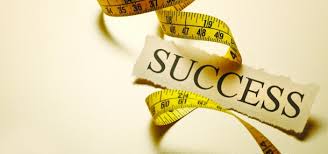I was talking not long ago with a lovely classical musician, someone well-known, who told heartwarming stories of reaching new people with his playing. He’d be with a small group of people, and his music would touch them, making new friends for our art.
Which is hardly a surprise, given how this man plays. And also not because in nearly any context, one on one encounters, or sessions with small groups, be an effective way to make friends and converts. I’m sure we’ve all heard many cases of this in classical music. Like the tour bus driver a veteran orchestra manager told me about, a man who started the tour indifferent to classical music, and then fell in love with a Mahler symphony the orchestra was playing. There are many stories like that.
But now…
 But now I want to gently say that stories like these may not show any great success for classical music. I’m sure that will sound surprising to some people reading this. The orchestra manager I mentioned, a seasoned orchestral veteran, loved to talk about the tour bus driver, who seemed to show that anyone could learn to love classical music. The musician I was talking to told his stories in much the same spirit.
But now I want to gently say that stories like these may not show any great success for classical music. I’m sure that will sound surprising to some people reading this. The orchestra manager I mentioned, a seasoned orchestral veteran, loved to talk about the tour bus driver, who seemed to show that anyone could learn to love classical music. The musician I was talking to told his stories in much the same spirit.
And let’s say that’s true. Let’s say there are many people we could reach, if only they were right there with us, sharing what we do.
But here’s the problem. Most people won’t be there with us. So our success with the people we touch directly doesn’t promise any wide success with the people we don’t directly touch. Maybe, if we could just be in the room with hundreds, thousands, millions of people…but you see the problem. We won’t be in the room with them. Can’t be. There are too many of them. Too many people we need to reach. We’ll never be able to speak to all of them directly.
Which means…
Which means that these heartwarming stories perhaps should be taken as cautionary tales, not as measures of success. Maybe they show us a problem. If this is the best we can do — if we mainly succeed when we’re right there with people — we’ll never build a new classical audience.
That’s because, to build that audience on any large scale, we have to reach many people at once. Imagine, if when Apple launched the iPhone, they did it one on one, or in small groups. And told the world about it. “Our product is such a great success! We showed it to groups of people in an Indianapolis mall, and all of them loved it.”
If that’s all that happened, the product wouldn’t be a great success yet. It might seem promising, but in the real world, we knew the iPhone was a huge success when people lined up at Apple Stores to buy it. Same with the Apple Watch. Apple in fact did introduce it privately, for instance to people in the fashion world. But that was for a special reason. That wasn’t marketing. That was to make sure the Watch would succeed as fashion. If the fashion people thought it looked good, very likely everyone else would.
And thus the Watch would overcome one of the big problems facing wearable technology, which was a perception that it looked clunky, and was clunky to wear. But the real success of the Watch came when Apple sold…what was it, a million of them the first week it went on sale? That was success.
So then…
We in classical music need success like that. We need to stop talking about small conversions that we accomplish, no matter how much they warm our hearts. We need big success. We need to have people lining up to go to our performances. Then we know we’ve succeeded. Then we know we have an audience. An audience that feels something in the air that’s exciting about classical music, and wants to be part of what we do.
Which means that we need people we don’t know showing up at our doors. I remember going to the first really big Bang on a Can Marathon, the first one at the Winter Garden in New York. There must have been a thousand people there, going in and out, or sitting raptly and listening, in chairs or on a big spiral staircase.
I asked David Lang, one of the three Bang on a Can founders, who these people were. “I don’t know!” he said.
That was success.
Original Content: Measuring success
No comments:
Post a Comment